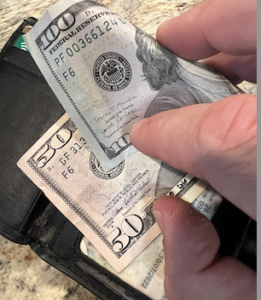 Collect Money for a Dog Bite.
Collect Money for a Dog Bite.
Many find it difficult to collect money for dog bite related claims. Many have a valid claim at law for a dog bite in Pennsylvania — along with provable damages — but soon realize a good case alone, will not guarantee the collection of money for compensation. In fact, it can be difficulty collecting money from the person responsible for the attacking dog.
Lack of Insurance
Not all parties carry liability insurance, This is true, even though it is relatively inexpensive in Pennsylvania. In fact, insurers in PA cannot discriminate against a dog breed by charging more to insure a pit bull versus a poodle. Still, many dog owners lack adequate insurance and therefore the injured party’s dog bite lawyer may need to look for assets owned by the dog owner to satisfy a claim. Collection can be tricky.
Hurdles to Collection in Pennsylvania
In PA, an injured party can sue the dog owner or any person responsible for the dog for money. However, there are several barrier to collection.
1. Wages Cannot Be Garnished to Satisfy a Dog Bite Claim
In Pennsylvania, a plaintiff cannot garnish a person’s wages, for claims related to a dog bite or animal attack. Only landlords, those seeking child support, and the IRS or PA tax collector garnish wages in PA.
2. Other Creditors Taking Priority
Even if you find assets owned by the judgment debtor, there could be other creditors out there with a claim to the person’s assets. The debtor might live in a nice house, but how many mortgages are there? A bank’s security interest in the form of a mortgage will take priority over a judgment for a dog bite, in PA.
3. Freezing Bank Accounts to Satisfy a Dog Bite Claim
An injured party may execute on a judgment against a dog owner by freezing the dog owner’s bank accounts. This, however, assumes there will be adequate money in the account. Plus, certain money is exempt from collection, such as social security checks.
4. Money in a Different State
A judgment is only good in the state where it is entered. Plus, it is the sheriff who executes on a judgment, and he only has jurisdiction in the county where he is located. Thus, to recover assets of a judgment debtor in another state, the judgment must be transferred, which is a fairly easy process, but takes time and gives the Defendant time to move assets.
What’s the Point of Getting a Dog Bite Judgment? Now What?
We’ve painted a very bleak picture thus far about money collection issues. However, there are certain tools a judgment holder possesses in Pennsylvania to get paid relative to a judgment for an animal attack.
1. A Judgment is Forever
Although a judgment on the Court of Common Pleas must be renewed every twenty years to effective in Pennsylvania, it can be renewed endlessly. Thus, even though it may be tricking to find the Defendant’s assets, if any, the injured party has time to do.
2. Automatic Lien On Real Property in Some Counties
In some counties, any civil judgment on the Court of Common Pleas — including those related to an animal attack — automatically go against the Defendant’s real property in that county. This creates a lien, with no additional paper work being filed by the injured plaintiff. This is true in Allegheny County, which includes Pittsburgh, where our lawyers primarily handle dog bite cases. In fact, if the Defendant’s real property gets foreclosed upon by others, the dog bite victim holding a judgment in Allegheny County is notified of the sheriff sale. The injured party is also given the opportunity to participate.
Note, however, that a judgment on the magisterial district docket (small claims) cannot operate as a lien against real property. Rather, it must first be entered as a judgment in the Court of Common Pleas.
3. Voidable Transfer Act (former Fraudulent Transfer Act)
This can give real teeth — pun intended — to collection efforts related to a dog bite judgment. The Voidable Transfer Act allows the judgment creditor to void certain transactions by the judgment debtor. Let’s say, for example, the judgment debtor tries to avoid a debt by transferring his boat into the name of his girlfriend and buddy. The Voidable Transfer Act addressees this. It allows the judgment creditor (the injured party) to sue both the judgment debtor, his girlfriend and his buddy.
Free Consultation
Please give our firm a call and talk to a talented Pittsburgh lawyer today to discuss your dog bite claim and collection issues in Pennsylvania. Our lawyers in Western PA do not charge for the initial meeting. We are happy to answer all your questions about dog bite related claims and potential collections issues.